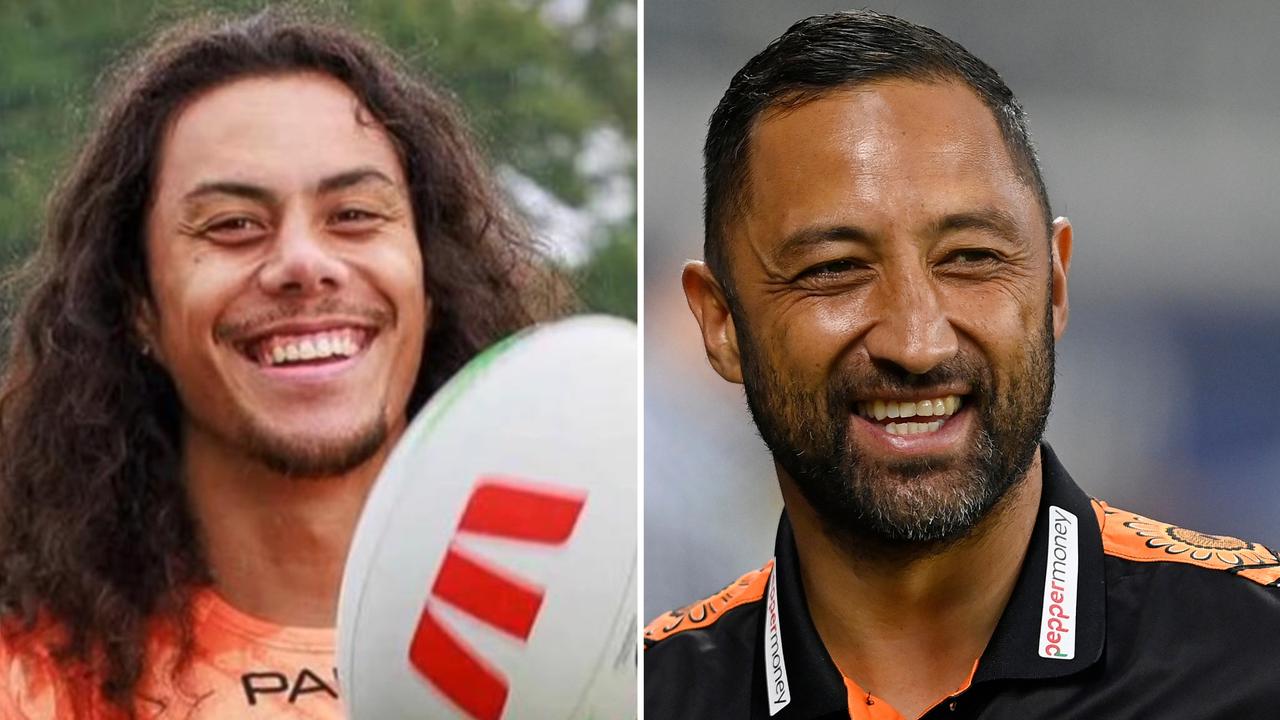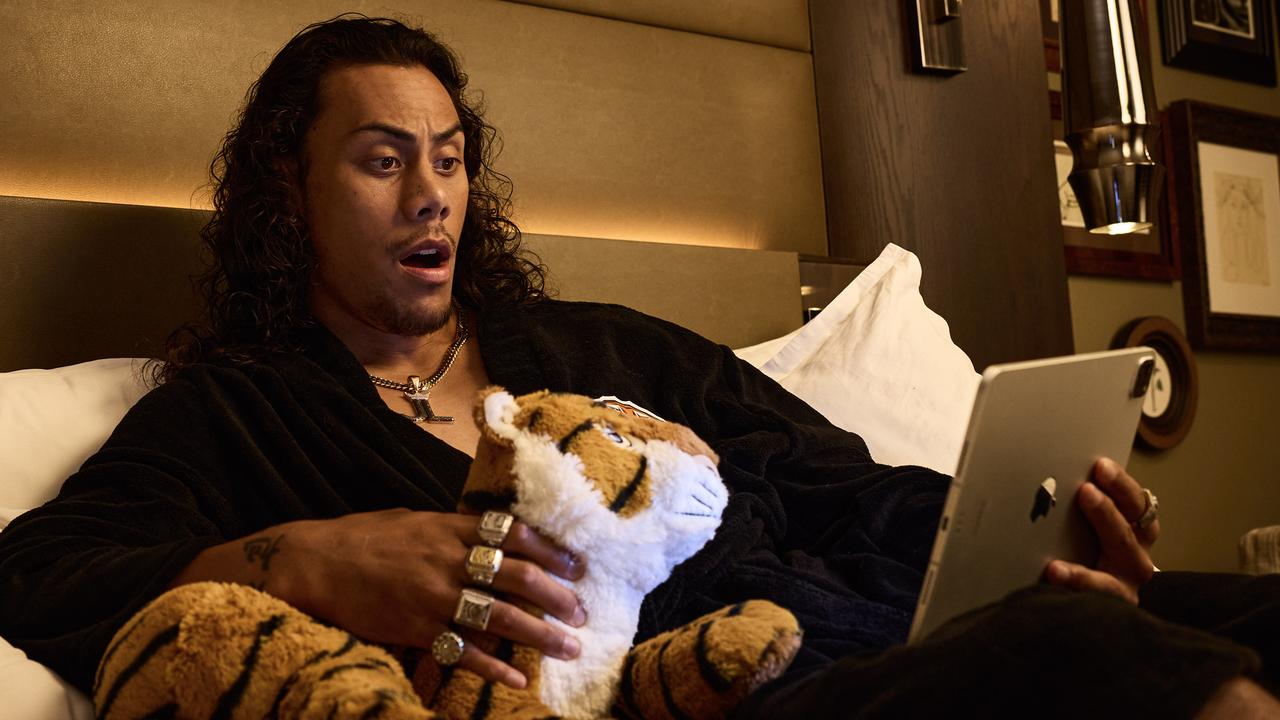NRL players don’t want to let NRL access phone records and bank accounts as part of new salary cap agreement
THE $9.4m salary cap has been agreed but NRL players are standing firm on issues of privacy. But when the game has been brought into disrepute so often, who can blame the NRL, writes PAUL KENT.
ONCE again NRL players want it both ways. Reward without responsibility.
On Monday evening they walked out of their RLPA meeting beating the coarse drums of war. They threatened to boycott the Dally M Awards, the World Cup and Aunty Marj’s Sunday afternoon clambake if that’s what it takes.
Strong language on uncertain grounds.
The $9.4 million salary cap has reached basic agreement.
The players are objecting to other parts of the deal, specifically the NRL’s intention to demand access to bank accounts and phone records.
BOYCOTTS? Players consider next step
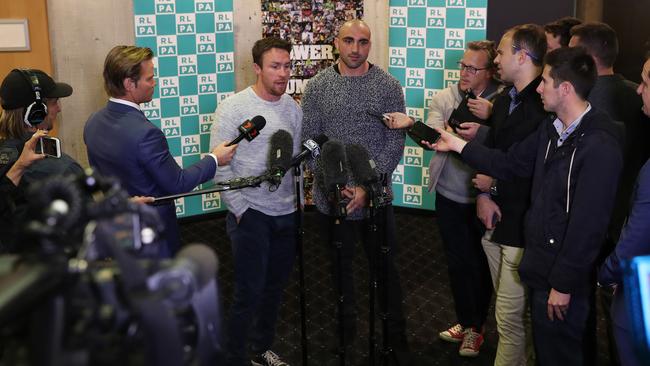
“I don’t think it is necessary,” Cronulla playmaker James Maloney said. “Would you hand over your records to your boss?
“It seems unreasonable. There are not too many other people in the world who have to hand over their bank records to their boss. It’s something that’s a bit of a touchy subject.
“We want our privacy and we want to be treated fairly. But you have the issue of integrity ... we want to make sure we keep the sport scandal-free and you don’t want those clouds hanging over you.
“I don’t think necessarily taking away all our privacy is the way to solve that.”
Since negotiations began, the players have insisted on being treated as partners in the game. It was their whole drive for greater finances.
Maloney made sure the big priority for the players remained earning a fixed share of revenue.
“It incentivises players to get on board and grow the game and everyone to be pushing in the right direction,” he said.
Then time to show it.
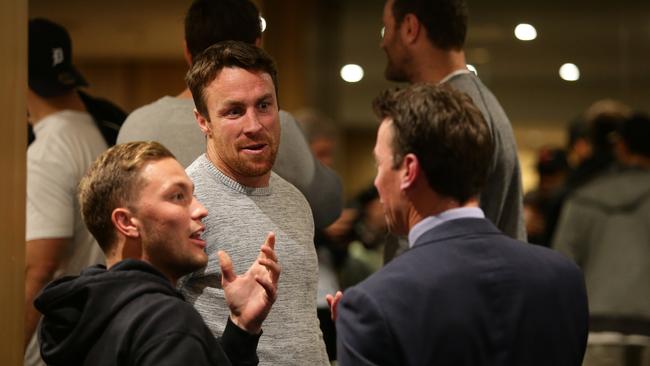
Integrity issues have plagued the game.
Tim Simona bet on games he played in, betting against himself, and got busted earlier this year. He was banned for life.
A police investigation into match fixing which centred around games between Manly and Souths and Manly and Parramatta in 2015 game ended earlier this year.
The police closed the investigation but not before claiming improprieties in payments to players.
Ryan Tandy was convicted in court in 2011 of spot fixing, a penalty so light the law was eventually changed to keep pace with the surge in sports gambling.
All caused major damage to the game.
Trust is integral to the future of the game. And, yes, the growth to which Maloney speaks. Once the trust is gone the game might as well pack up the caravan.
If people can no longer trust a result, or that a try was scored honestly or a tackle was missed accidentally, the game will never reach its full growth.
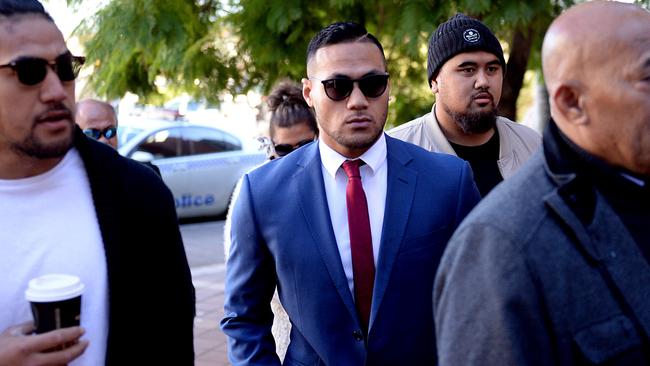
Racing realised integrity and public trust were the most essential parts of its business many years ago and government legislation was changed to ban jockeys from using mobile phones in the jockeys’ room.
They were required under law to hand over their phone records and banks details if stewards had enough to show cause.
The NRL, with so much money in sports gambling and now drawing millions of dollars in revenue from betting turnover, is now at a similar stage.
Yet the players dig in.
“It seems unreasonable,” Maloney said.
It might be. But to whom?
Firstly, most of our bosses already know how much income goes into our accounts because they are the ones paying us. Just like NRL players, whose contracts are registered with the NRL.
Secondly, the records can be demanded only if there is enough evidence for the player to show cause.
And I wouldn’t want NRL officials scratching around my business because they leak like an old lawnmower.
It all seems perfectly logical.
But there are other, darker reasons players don’t want the NRL sniffing around their records.
For one, it increases the possibility of catching cap cheats and stopping all that under-the-table third-party money players are earning.
The NRL busted Parramatta last year, for instance, when Eels-friendly companies invoiced the club bloated sums and then passed on the added dollars to players.
The NRL had no jurisdiction to investigate the companies and the money went undetected until a whistleblower gave them up.
Many of Melbourne’s illegal payments in 2010 went into the players’ bank accounts and were legally taxed, but without the NRL’s knowledge. The same with Canterbury, who were caught in 2002.
A number of other clubs are still doing it.
Still, Maloney says: “I don’t think it is necessary.”
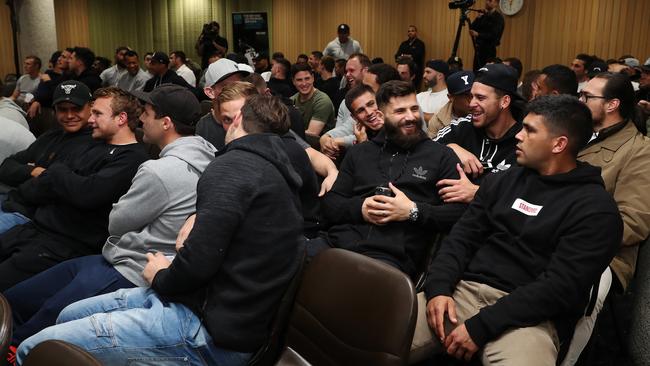
Then in the same paragraph, he says: “We want to keep the sport scandal-free. We want our privacy and want to be treated fairly.”
Many concessions are made to NRL players.
Sam Thaiday said on Monday he was concerned about a public backlash given wages are set to balloon to an average $330,000 a year, a 52 per cent increase.
“It’s very hard (to explain), but we have to try to set ourselves up at a youngish age,” Thaiday said.
And most of the public does understand.
Players have a limited careers and punish themselves hard for their reward. Honest pay for honest work.
But players need to understand something, too. Not every player believes in fair pay for fair reward and they can be tempted by easy money, and that is worth protecting.
Originally published as NRL players don’t want to let NRL access phone records and bank accounts as part of new salary cap agreement

